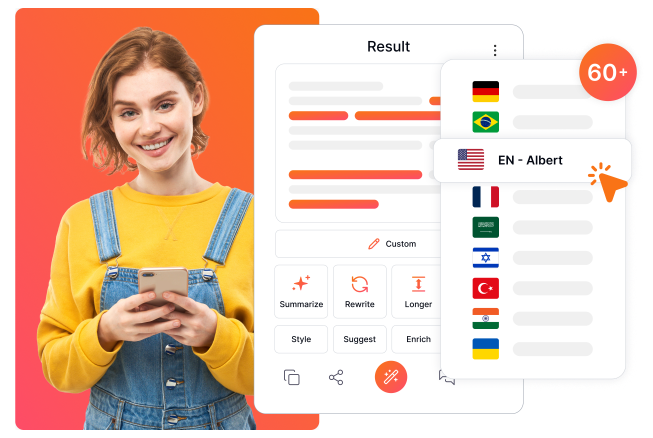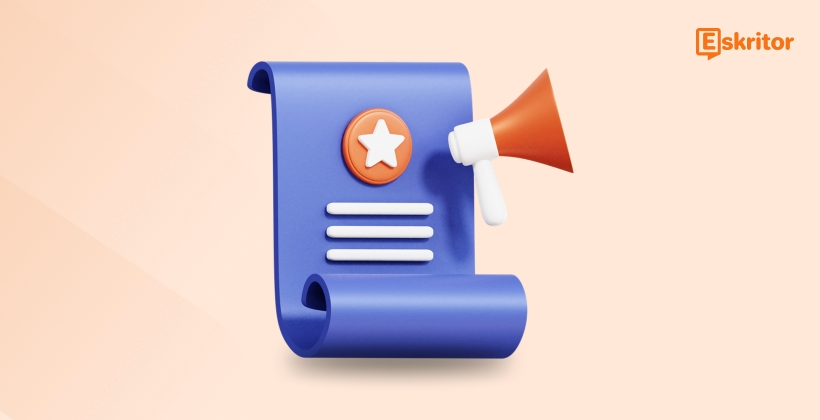AI Editing Features That Improve Your Writing Workflow
AI Editing Features That Improve Your Writing Workflow
Blog Article
Effortless Precision with AI Editing Solutions
Synthetic intelligence (AI) publishing engineering has developed fast over the past decade, reshaping the way we create and talk with written content. From syntax modification instruments to AI-generated books, the number of choices appear limitless. But where exactly is this engineering going? Let's examine the improvements, issues, and potential potential of AI Editing.

How AI Publishing Technology Operates Today
At their primary, AI writing technology utilizes Organic Language Handling (NLP) and equipment learning. These technologies enable designs to know, create, and improve individual language. Tools accessible nowadays excel at tasks like:
1. Material Formation
AI has achieved a spot wherever it could make complete blog articles, social media sayings, and also news articles. Some models are capable of mimicking individual publishing styles therefore effectively that unique between AI- and human-written content is now significantly difficult.
2. Grammar and Type Suggestion
AI-powered writing assistants don't only always check for grammar and punctuation mistakes; they also offer ideas to boost tone, quality, and sentence structure, creating complex writing accessible to a broad audience.
3. Sentiment Examination
AI may examine the psychological tone of an item, allowing companies to assess how their communications can resonate with readers. This really is particularly of use in marketing and customer interaction.
The Recent Styles in AI Publishing Engineering
A few trends are shaping the following phase of AI-powered publishing resources:
• Personalization
AI writing technology is significantly effective at tailoring material to personal preferences. Designs can conform to a user's writing design, ensuring the output thinks authentic.
• Multilingual Features
Several AI resources are increasing their worldwide reach by providing enhanced interpretation features and support for numerous languages.
• Enhanced Study Characteristics
AI instruments now get the capacity to analyze great levels of information and present fact-checked, well-researched publishing in seconds, simplifying the procedure for experts in industries like legislation, financing, and journalism.
What the Future Holds for AI Writing Technology
1. Increased Imagination
While recent AI is adept at generating content, their creativity remains restricted to habits within its teaching data. Potential AI is not just estimated to help but to create unique, informative performs that problem human imagination.
2. Seamless Venture
Imagine an AI that performs along side you in real-time, completing your sentences, conducting live edits, and actually brainstorming ideas. AI writing methods may soon become co-authors, permitting imagination to movement uninterrupted.
3. Honest and Accessible Style
With rising issue about plagiarism, misinformation, and prejudice, designers will work toward more translucent AI teaching functions and ethical implementation. Future methods will probably offer more extensive details and actions to make certain accountability.
Issues and Concerns
The evolution of AI writing technology isn't without hurdles, including:
• Ethical Issues

Who owns material created by AI? Just how can we ensure AI-generated content is not spreading misinformation? These debates stay unresolved.
• Human-AI Balance
May AI match human creativity or completely replace particular roles? Several authors and artists concern yourself with their relevance in an AI-driven world.
• Accessibility Split
Not all agencies or parts have equal use of cutting-edge AI methods, raising questions about the affect with this engineering on world wide inequality.
Adjusting the Way We Write
AI writing technology remains in their infancy compared to its potential. Whether you are a student designing essays, a content marketer targeting unique audiences, or a novelist seeking enthusiasm, AI methods can continue to revolutionize the writing process. The following decade promises breakthroughs that mixture individual ingenuity with unit intelligence, creating a future where publishing is better, available, and impactful than actually before.
Report this page